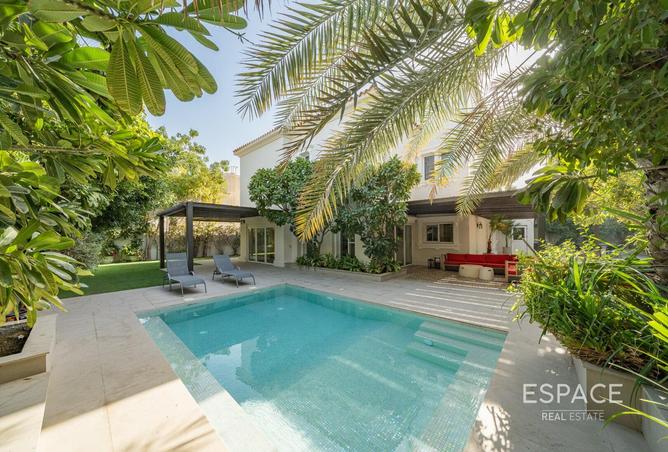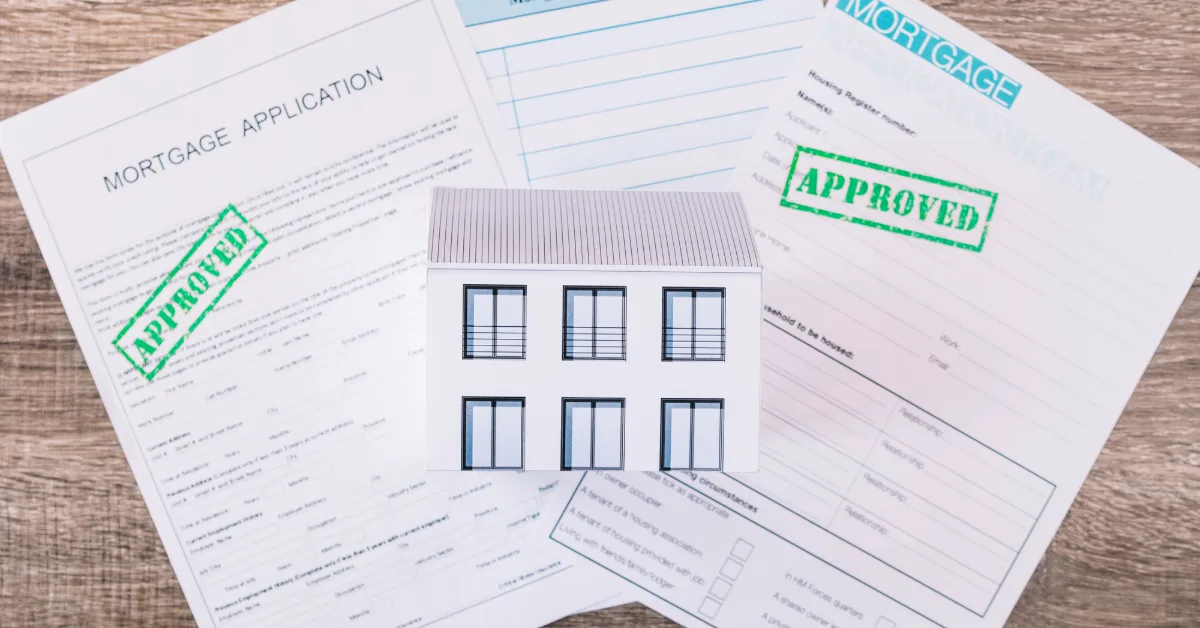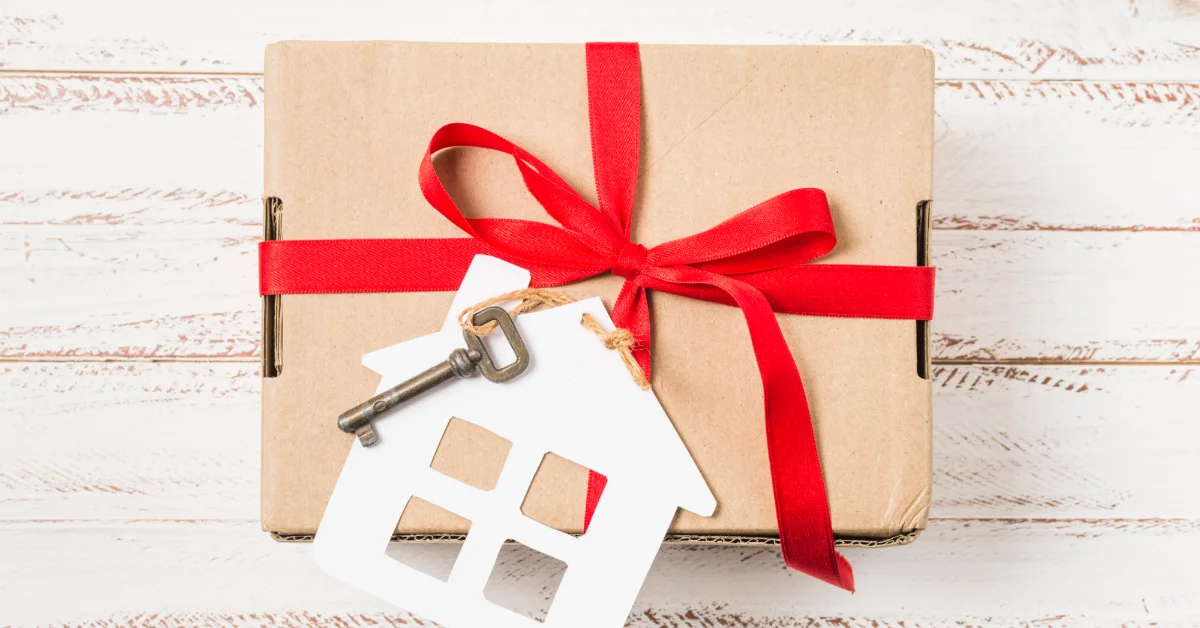Property gifting refers to the legal transfer of ownership without monetary exchange, governed by the Dubai Land Department (DLD). It’s a standard option among property owners who wish to transfer assets within the family, often for inheritance planning, goodwill, or long-term financial structuring.
Unlike a property sale, gifting is not a commercial transaction but still requires official registration, valuation, and compliance with Dubai’s real estate laws to maintain transparency and prevent misuse. If you’re planning to gift property in Dubai to a family member or a company you wholly own, this guide explains all the key rules, eligibility requirements, and costs for 2025.
- Who Can Gift and Receive Property in Dubai?
- Key Restrictions on Property Gifting
- Step-by-Step Process to Gift Property in Dubai
- Understanding Property Valuation for Gifts
- Special Cases and Considerations
- Comparison: Gifting vs Sale Transfer
- Benefits of Gifting Property in Dubai
- Common Pitfalls to Avoid
- Key Takeaways
- FAQs

Who Can Gift and Receive Property in Dubai?
Dubai’s property gifting framework allows transfers mainly among immediate family members and certain corporate entities. Eligible donors and recipients include parents, children, and spouses, as well as companies 100% owned by the donor. Transfers to extended relatives, such as siblings, grandparents, stepparents, or cousins, don’t qualify for the reduced-fee scheme. Instead, they count as standard sales and are subject to the full 4% DLD transfer fee.
In addition, recipients must hold a valid UAE residency permit, and expats may only gift property located in designated freehold zones, such as Dubai Marina, Palm Jumeirah, and Business Bay.
According to DLD regulations:
- Eligible Relationships
- Parents to children (and vice versa)
- Between spouses
- Property gifted to a company 100% owned by the donor
- Not Eligible for Reduced Fee
- Siblings, stepparents, stepchildren, grandparents, cousins, or extended family
- Standard property sales rules apply to these transfers, and they incur the full 4% DLD transfer fee.
- Residency Requirement
Explore the Available Property for Sale in Dubai
-

Villa
Listed 3 days ago
13,500,000 AED
Turnkey | Extended | Best Value Alvorada
Alvorada 1, Alvorada, Arabian Ranches, Dubai
4
4
8,451 sqft
-

Villa
Listed 2 weeks ago
13,500,000 AED
Extended | Upgraded | Private Pool
Alvorada 1, Alvorada, Arabian Ranches, Dubai
4
4
4,200 sqft
-

Apartment
Listed 5 days ago
1,950,000 AED
Exclusive | Fully Furnished | Prime Location JVC
Binghatti Emerald, District 15, Jumeirah Village Circle, Dubai
3
4
1,352 sqft
-

Apartment
Listed 2 weeks ago
3,380,000 AED
Exclusive 1 Bed Gem | Pool View | Rented Long Term
City Walk Residential Building 14, City Walk Residential, City Walk, Dubai
1
2
1,288 sqft
-

Apartment
Listed 3 weeks ago
3,050,000 AED
Modern Urban Retreat 1 Bed With Pool View Balcony
City Walk Residential Building 4B, City Walk Residential, City Walk, Dubai
1
2
1,279 sqft
-

Apartment
Listed 4 weeks ago
7,300,000 AED
Exclusive Unit | Bright | Rented | Boulevard Views
City Walk Residential Building 22, City Walk Residential, City Walk, Dubai
3
5
2,270 sqft
-

Townhouse
Listed 4 days ago
2,290,000 AED
Ready to move - Direct View of Amenities-No agent
Parkside 1, EMAAR South, Dubai South (Dubai World Central), Dubai
3
4
1,427 sqft
-

Apartment
Listed 1 month ago
5,600,000 AED
Bright Corner Unit With Pool and Community View
City Walk Residential Building 19, City Walk Residential, City Walk, Dubai
2
4
1,660 sqft
-

Apartment
Listed 1 month ago
5,150,000 AED
Exclusive | Bright And Sunny Unit | Jumeirah View
City Walk Residential Building 22, City Walk Residential, City Walk, Dubai
2
5
1,698 sqft
-

Apartment
Listed 1 month ago
3,000,000 AED
Bright 1 BR | Spacious Urban Gem | Prime Location
City Walk Residential Building 22, City Walk Residential, City Walk, Dubai
1
2
1,191 sqft
Key Restrictions on Property Gifting
Before starting the process, property owners should be aware of several key restrictions on gifting in Dubai. These rules are enforced by the Dubai Land Department (DLD) to maintain transparency and prevent misuse.
- One-Time Gifting Rule: You can gift each property only once under the reduced-fee programme. Any future transfer counts as a standard sale.
- Mortgage Conditions: If the property has a mortgage, an NOC from the bank is mandatory. The loan may need to be cleared or transferred to the recipient.
- Freehold Limitation for Expats: Non-UAE nationals can gift properties only within designated freehold zones, such as Palm Jumeirah, Downtown Dubai, and Dubai Marina.
- Off-Plan Properties: You cannot gift a property under construction until you receive the title deed.
Step-by-Step Process to Gift Property in Dubai
The Dubai Land Department (DLD) follows a transparent, regulated process for gifting property. Although the process is straightforward, you must complete each stage accurately, including documentation, valuation, NOCs, application, and fee payments, to avoid delays.
Moreover, the donor and recipient (or their authorised representatives) show proof of identity and relationship, obtain the official valuation, and complete the transfer at DLD; then a new title deed is issued.

Step 1: Prepare the Required Documents
Start by assembling all documents the DLD will review so you don’t waste time at submission. You’ll typically need the following
- Original title deed,
- Completed Gift Deed (Hiba)
- DLD valuation certificate
- NOC (developer or bank)
- Passports and Emirates IDs for both parties
- Attested proof of relationship (birth or marriage certificate)
- A notarised Power of Attorney if anyone is represented.
Step 2: Apply for a Property Valuation Certificate
Next, request the official DLD valuation for the property. This figure serves as the basis for the fee calculation and is final for gift transfer purposes. Apply online or at a DLD service centre and keep the receipt with your file. The DLD’s assessed value is final and forms the basis for the transfer fee (0.125%).
Tip: Ensure the title deed details (owner name, unit number, plot) match your application precisely to avoid rework.
For a quick refresher on how registrations and supporting documents fit together, see our legal procedures guide for buying property in Dubai.
Step 3: Obtain a No Objection Certificate (NOC)
If the unit is freehold, obtain an NOC from the developer confirming that the service charges are clear. If the property is mortgaged, your bank’s NOC is mandatory; some lenders require settlement, others allow refinancing or transfer to the recipient.
Besides, banks may request the mortgage to be cleared first, or they may issue a conditional approval allowing transfer of the loan.
If refinancing is part of your plan, compare options with Mortgage Finder before you request the bank NOC.
Step 4: Submit the Gift Transfer Application (Hiba)
With documents and NOCs ready, submit the Hiba application at the DLD. The donor and recipient (or authorised representatives) attend with originals. DLD will verify identities, check the relationship proof, and confirm the valuation before issuing a payment slip for fees.
Step 5: Pay DLD Gift Transfer Fee and Complete Registration
Once the title deed is issued in the recipient’s name, the gifting process is complete. Ownership can be verified through the DLD portal or the Dubai REST app.
Gift Transfer Fees
- 0.125% of the DLD-assessed property value (minimum AED 2,000)
Applicable to first-degree relatives and self-owned companies. - 4% standard transfer fee for non-eligible relatives.
Admin fees: Usually AED 250–500 for registration and processing.
After payment, DLD issues a new title deed in the recipient’s name, officially completing the transfer. You can verify the title deed online via DLD for peace of mind.
Understanding Property Valuation for Gifts
Valuation is a crucial part of Dubai’s property-gifting process. Every property gift in Dubai must go through mandatory valuation by the Dubai Land Department (DLD) to ensure transparency and prevent underreporting.
Consequently, the DLD determines the property’s fair market value based on location, size, type, and comparable recent transactions; this figure serves as the basis for calculating the 0.125% transfer fee.
Special Cases and Considerations
Properties gifted to minors may require court approval and the presence of a guardian, and the DLD may request supporting legal documentation before approving such transfers. If the unit is mortgaged, a bank NOC or loan settlement is obligatory. Finally, Dubai levies no inheritance or gift tax; only the DLD transfer fee applies.
If you’re exploring how property gifting fits into long-term family planning, our guide to property inheritance in the UAE offers valuable insights.

1. Expats
Expats may only gift property in freehold zones, such as Palm Jumeirah, Downtown Dubai, Business Bay, and Dubai Marina. Both the donor and recipient must hold a valid UAE residency and provide attested proof of their relationship.
Learn more about foreign ownership rights in the Guide to Buying Property in Dubai as an Expat.
2. Companies
Gifting to or from a company is allowed only if the donor owns 100% of the company shares. In this case, additional corporate documentation, like a trade licence, MOA, and ownership certificates, must be submitted to the DLD.
3. Minors
Properties can be gifted to minors, but this often requires court approval and legal representation by a parent or guardian. The DLD may request supporting legal documentation before approving such transfers.
4. Mortgaged Properties
Gifting a mortgaged property requires a bank NOC and possibly a loan settlement before transfer. Some banks may allow gift transfers if the mortgage is refinanced or transferred under the recipient’s name.
5. Tax Implications
Dubai does not impose inheritance or gift tax, nor does it impose a capital gains tax on property transfers.
The only significant cost is the DLD transfer fee (0.125%), which is among the lowest in the region.
Comparison: Gifting vs Sale Transfer
Before proceeding with a property gift, it’s helpful to understand how gifting differs from a standard sale in Dubai. Both processes involve title deed registration through the Dubai Land Department, but they vary in fees, eligibility, and purpose. While a sale is a commercial transaction between any two parties, gifting is a non-commercial transfer limited to close relatives or wholly owned companies, making it a more cost-effective option for family asset planning.
| Feature | Gifting | Standard Sale |
| Eligible Recipients | First-degree relatives or a self-owned company | Any buyer |
| DLD Transfer Fee | 0.125% (min AED 2,000) | 4% |
| Valuation Requirement | Mandatory | Based on declared or market value |
| Freehold Eligibility (Expats) | Yes | Yes |
| Corporate Recipients | Yes, if 100% owned | Yes |
| Siblings Eligible? | No (full fee applies) | Yes |
| Tax | No gift/inheritance tax | No capital gains tax |
Benefits of Gifting Property in Dubai
Gifting property in Dubai is a simple, cost-effective way to transfer ownership within families. It helps reduce transfer fees, supports succession planning, and ensures transparency under the supervision of the Dubai Land Department (DLD). With no gift or inheritance tax, it’s a practical option for owners seeking to manage their assets efficiently while keeping the process legally secure and straightforward.
Key Benefits
- Cost Efficiency: Enjoy significantly reduced DLD fees (0.125 % instead of 4 % for eligible relatives).
- Succession Planning: Streamlines inheritance and asset handover within families.
- Legal Transparency: Every transfer is reviewed and recorded by the DLD, ensuring compliance and security of ownership.
- Asset Management: Helps families reorganise property portfolios between spouses, parents, and children.
- Tax-Free Advantage: No gift, capital gains, or inheritance tax applies, keeping costs predictable.
Common Pitfalls to Avoid
Even though the property gifting process in Dubai is straightforward, several common mistakes can lead to costly delays or rejection by the Dubai Land Department (DLD). Being aware of these in advance helps ensure a smooth, compliant transfer.
Key Pitfalls
- Skipping DLD Valuation: The official valuation is mandatory; without it, the gift cannot be registered.
- Unattested Foreign Documents: Birth or marriage certificates issued outside the UAE must be translated and attested before submission.
- Unsettled Developer Fees: Developers will not issue a NOC if service charges remain unpaid.
- Mortgage Oversight: A missing bank NOC or unsettled loan can stop the process entirely.
- Sibling Transfers: Siblings do not qualify for the reduced 0.125% gifting fee and must complete a standard sale at 4%.
Key Takeaways
Property gifting in Dubai provides a secure and transparent way for owners to transfer real estate to first-degree relatives or companies they fully own, under the regulation of the Dubai Land Department (DLD).
The process requires an official valuation, proof of relationship, and compliance with DLD documentation standards, with a reduced transfer fee of 0.125% instead of the standard 4%. Only ready properties with clear title deeds can be gifted, and expats are restricted to freehold zones such as Palm Jumeirah and Downtown Dubai. Bank approvals, attested certificates, and a valid UAE residency are essential for a smooth transaction. With no gift or inheritance tax, property gifting remains one of the most cost-efficient methods of family asset management in the UAE..
FAQs
No, you can’t. Siblings are not considered first-degree relatives under the Dubai Land Department’s gifting regulations. Transfers between siblings are treated as standard sales and subject to the complete 4% DLD transfer fee.
Yes, you can, but you must obtain a No Objection Certificate (NOC) from the bank. In some cases, the mortgage must be cleared first, while others allow refinancing or loan transfer under the recipient’s name.
You’ll need the original title deed, DLD valuation certificate, NOC from the developer or bank, completed Gift Deed (Hiba), passports and Emirates IDs of both parties, and attested proof of relationship, such as a birth or marriage certificate.
No, there are not. Dubai does not impose inheritance, capital gains, or gift taxes. The only cost is the DLD transfer fee of 0.125% of the property’s assessed value for eligible family members.
Yes, expats can gift property, but only in designated freehold areas such as Dubai Marina, Palm Jumeirah, and Downtown Dubai. Both donor and recipient must hold a valid UAE residency status.
No. The reduced DLD fee applies only to the first gift transfer. Any subsequent transfer of the same property is treated as a standard sale and charged at the 4% rate.